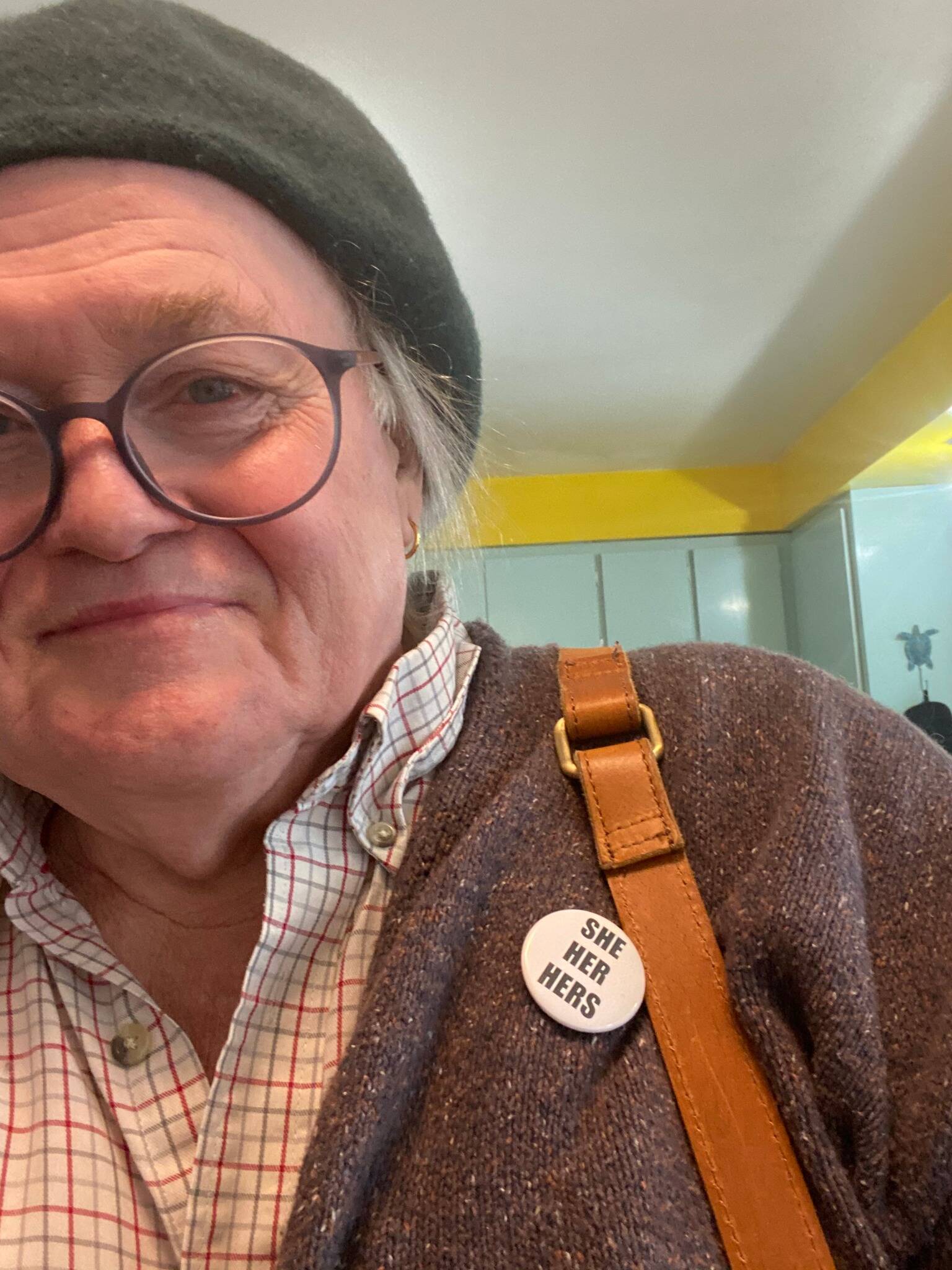The danger is in the neatness of identifications.
–Samuel Beckett
Molly, the older of our two poodles, is a female we have had for all of her 10 years. Hugo, our 2-year-old male, is the larger of the two dogs, but when he seems to be getting out of line, Molly doesn’t hesitate to try to mount him, humping him as if she were the male and he the female.
This has nothing to do with sex or gender.
Molly certainly can have no illusion of trying to procreate this way. She’s not mixed up about gender, and she’s not confused. (And she hasn’t been “groomed,” although the “grooming” staff at PetCo may have a secret agenda; you should check with Marjorie Taylor Greene about that.)
Molly’s non-verbal message to Hugo is simple, immediate–not at all premeditated–and unambiguous: I’m the boss here; don’t mess with the OG Pood.
Dogs, of course, have no conception of themselves as male or female, masculine or feminine. None of our abstract categories operate in the dog brain. Molly is just being herself, responding to the experience as experience, acting in the moment as the moment requires.
One of the lovely things about living with dogs is watching how their relationship with the world seems so much more intimate than ours, unmediated by language and abstract thought. A dog loves you, but it doesn’t know that it loves you. It can’t reflect on that fact. It doesn’t trouble itself with asking what love is or why you.
As far as we can tell, these are exclusively human troubles–our fretting over whether our words and concepts and categories, our assumptions and our beliefs accurately reflect the world at large.
This trouble is where both logic and poetry begin.
Unlike science, logic doesn’t propose to discover new things about the world. Rather, logic works backwards from something we think we already know to ask how it is that we can actually say we know it. The classic example is the mortality of Socrates. We all know that Socrates is mortal, but how do we know he is mortal?
Well, he’s dead. That’s usually a pretty good sign.
But what if Socrates is still walking around?. How do we know that he’s mortal?
Logic gives us tools of deductive and inductive reasoning that let us work backward to discover whether we have a reasonable or empirical basis for conclusions we have already reached.
Poetry comes at the same problem a different way entirely. Poetry seems to say that if the world is such a big riddle that we have a hard time knowing whether we actually know it and a hard time comprehending it in language, let’s just stretch the language and give the world some wiggle room. Let’s make the language as big a riddle as life itself, definite but ambiguous, clear but mysterious, beautiful but hard to fully understand, at once subversive and celebratory.
Poets say let’s see if we can’t use this language to glimpse an intimacy with experience that seems to lie just out of our reach. And let’s keep this poetic language anchored to the earth by grounding it in the physical sound of words themselves, in word music, in rhymes and rhythms, assonance and alliteration.
This is what the term “non-binary” means to me. It’s poetry. Not simply an indication that a person identifies with characteristics of both genders, although that’s a part of it. More fundamentally, however, it’s a way of negotiating around gender categories that have atrophied and can no longer accurately reflect who we are in the world–if they ever did.
Are you a man or a woman?
Yes.
Are you feminine or masculine?
Sure. Neither. Maybe. Sometimes.
Define your terms. In rhymes.
We are always trying to explain ourselves and our world — much the way I try in these columns to explain my own quirks and oddities. But rarely do our explanations seem commensurate with the experiences themselves.
Maybe that’s why we so often seek out experiences that are so clearly beyond words, beauty we can describe but never completely grasp, never fully comprehend. A late winter afternoon in the mountains. A sunrise at sea. City streets in the wee hours of the morning. The birth of a child. Music. Love.
And there are those other experiences, equally incomprehensible, that we don’t seek but can never avoid: danger, violence, the death of a loved one.
Experiences that leave us speechless.
And maybe that’s why we need poetry. Its fuzzy and wiggly riddles bring us as close as we can come to verbalizing–aloud where we can hear each other–those moments that seem to lie so far beyond the reach of words, sprawling out all over the page disrespectful of borders and definitions and categories.
I love poetry, and I love living non-binary. They seem so much the same. I just don’t seem to be able to color inside the lines. Never have, never will.
*****
Postscript: As I write this, I am hearing news of some threatening posts appearing in public places around town targeting Juneau’s trans community and our children — threatening and kind of surprising, since Juneau is such an incredibly supportive community. Anyone who feels threatened and unsafe, we have people and resources in Juneau that can help. You’re not alone, and you don’t have to deal with stuff like this by yourself. Check out SEAGLA’s website, https://akseagla.org/community-resources, for some of our local resources.

